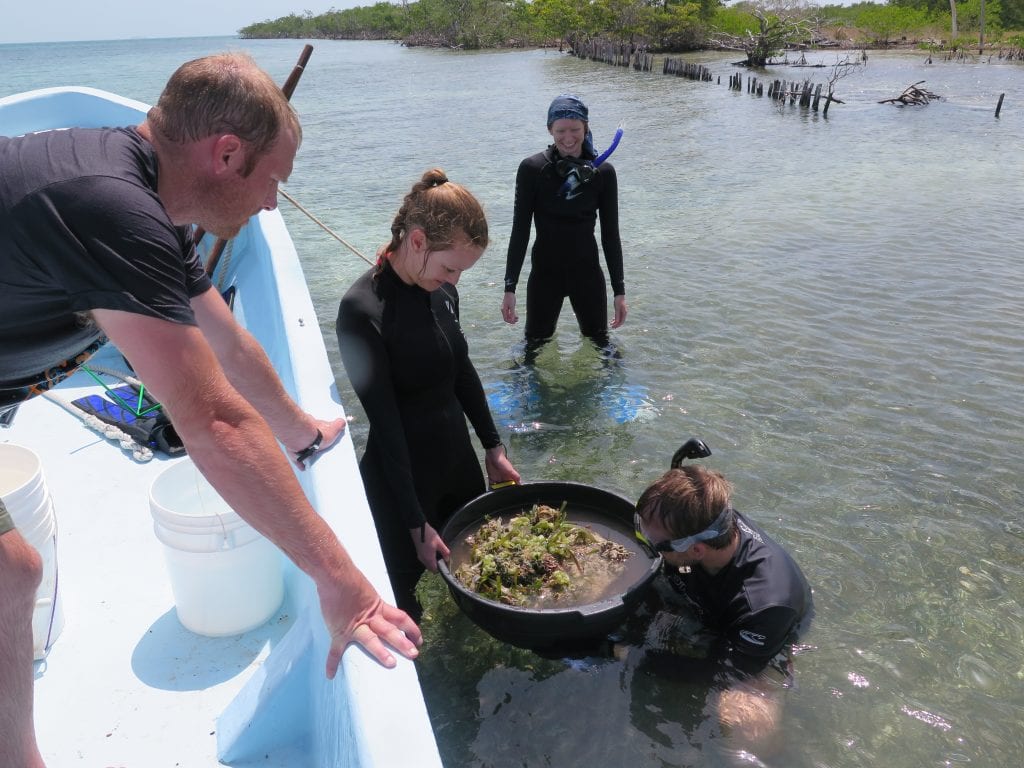‘Multiple Paternity’ Gives Invertebrates Climate Change Advantage, Research Finds

T.J. Yockachonis sampling porcelain crabs from Queen Conch in Belize (Photo S.McKeon)
A common reproductive strategy among invertebrates called multiple paternity could give animals like porcelain crabs a survival advantage as the world grows warmer, new research finds.
While climate change is often associated with major events like melting glaciers and super storms, the authors of the recently published paper in the Journal of Crustacean Biology chose to look through a much smaller lens. Porcelain crabs served as the bellwether because they cannot migrate away from extreme weather, unlike other coastal species like fish or dolphins.
Specifically, the team was curious about the effects of extreme heat on multiple males fertilizing the same brood. Under ordinary circumstances, multiple paternity diversifies the gene pool and increases the hardiness of offspring. Now, new research shows temperature swings actually produces crabs with 24 times more fitness than previous generations.
“Through our research we’ve seen that this phenomenon is crucial to the survival strategy of these species,” said Seabird McKeon, Ph.D., a biodiversity scientist with the UCF Lewis Lab of Applied Coastal Ecology, co-author of the paper, along with T.J. Yockachonis, the Smithsonian National Museum’s Amanda Windsor, Ph.D., and Jonathon Stillman, Ph.D., of the University of California, Berkley.
Yockachonis, a marine biology Ph.D student at Washington State University, took the lead on the publication as his master’s thesis. McKeon’s supportive role helped sponsor Yockachonis throughout his research.
“My role was providing expertise on crustaceans and marine organisms,” said McKeon. “T.J. and I looked at this information together.”
McKeon hopes the research will continue to shed a light on climate change and how it directly affects often unseen organisms.
“We hope it will lend a different perspective on how we can look at climate change and its effects,” McKeon said.
